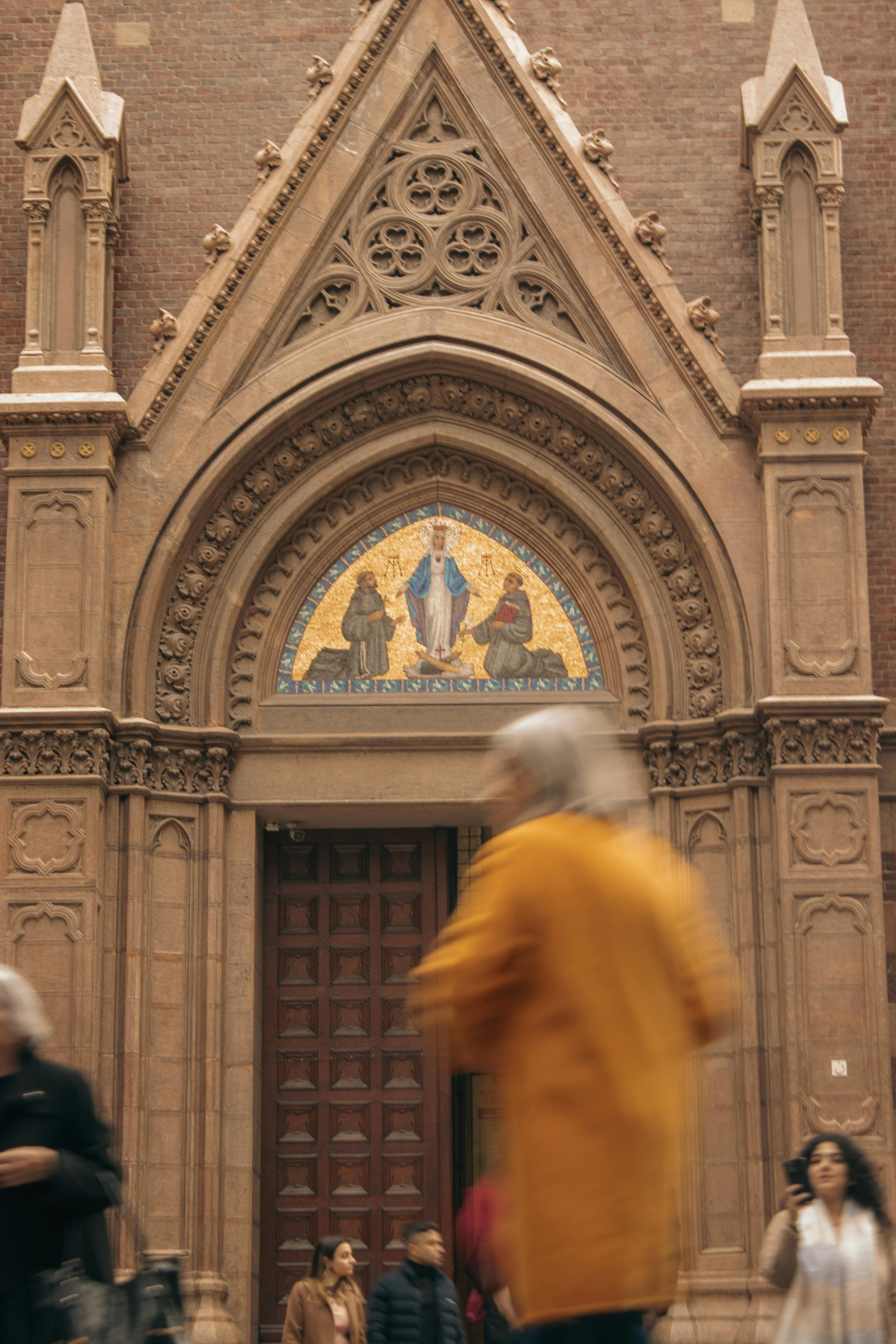In a movement known as “Yes in God's Backyard,” faith organizations in California and beyond are taking action to tackle the housing crisis. Congregations like the Inglewood First United Methodist Church are recognizing the struggles faced by their congregants, who are being priced out of their neighborhoods or burdened by high rent. To address this issue, the church is embarking on a project to build 60 studio apartments, with half reserved for older adults and all units offered at below-market rates. By utilizing their properties to create affordable housing, these religious organizations are answering the question, “What would Jesus do?” in a tangible and impactful way.

Overview of the Housing Crisis
The housing crisis has become a pressing issue in many communities, with rising housing prices and a struggle to find affordable housing affecting numerous individuals and families. This crisis has also resulted in a significant increase in homelessness, further exacerbating the issue.
Rising housing prices
One of the key factors contributing to the housing crisis is the rising cost of housing. Home prices and rental rates have been steadily increasing, making it increasingly difficult for individuals and families to afford suitable housing.
Struggle to find affordable housing
As housing prices continue to rise, many individuals and families are finding it challenging to find affordable housing options. Limited supply and high demand have created a highly competitive market, leaving many people unable to secure affordable and stable housing.
Homelessness issue
The housing crisis has also led to a rise in homelessness. With a lack of affordable housing options, many individuals and families are left with no choice but to live on the streets or in temporary shelters. This has significant social and economic implications and highlights the urgent need for affordable housing solutions.
Introduction to the ‘Yes in God's Backyard' Movement
Recognizing the urgent need for affordable housing solutions, the ‘Yes in God's Backyard' movement has emerged as a unique and promising initiative. This movement focuses on building affordable housing on faith organizations' properties, utilizing their land and resources to address the housing crisis.
Building affordable housing on faith organizations’ properties
The ‘Yes in God's Backyard' movement encourages faith organizations to use their undeveloped or underutilized properties to construct affordable housing units. These properties, often owned by churches and other religious institutions, provide a potential solution to the lack of available land for affordable housing development.
Gaining steam in California and beyond
The ‘Yes in God's Backyard' movement has gained significant traction, particularly in California. Faith organizations in this state, which has been hit hard by the housing crisis, have taken the lead in utilizing their properties to provide affordable housing options. However, the movement is not limited to California and has the potential to spread to other states facing similar challenges.
Case Study: Inglewood First United Methodist Church
One prominent example of the ‘Yes in God's Backyard' movement in action is the Inglewood First United Methodist Church in Inglewood, California. Rev. Victor Cyrus-Franklin, the pastor of the church, has been leading an affordable housing initiative to address the housing crisis affecting his congregants.

Testimony from Rev. Victor Cyrus-Franklin
Rev. Victor Cyrus-Franklin has witnessed firsthand the impact of rising housing prices on his congregants. Many of them have been priced out of the neighborhood and struggle to find affordable housing options. In addition, the burden of high rents has made it challenging for congregants to contribute financially to the church.
Impact of housing prices on congregants
The rising housing prices have not only affected the congregants' ability to find stable housing, but it has also strained their finances. With a significant portion of their income going towards rent, many congregants have had to make difficult choices and sacrifices. This has had a profound impact on the community and the church as a whole.
The Church’s Response: Building Affordable Housing
In response to the housing crisis, the Inglewood First United Methodist Church has taken a proactive approach by embarking on a project to build affordable housing on their property.
Construction plans for 60 studio apartments
The church has developed plans to construct 60 studio apartments on their property. These apartments will replace three empty buildings that used to house a school. The construction of these units will provide affordable housing options for individuals and families in need.

Conversion of empty buildings
By repurposing vacant buildings, the church is utilizing existing infrastructure to address the affordable housing shortage. This approach not only maximizes the use of available space but also preserves the historical and architectural value of the property.
Focus on providing housing for older adults
The Inglewood First United Methodist Church's affordable housing project will prioritize providing housing for older adults. As seniors are particularly vulnerable to the impacts of the housing crisis, this targeted approach will ensure that this demographic has access to safe and affordable housing options.
Rent Control and Rent Stabilization
Addressing the housing crisis requires not only faith organizations' efforts but also government intervention. Rent control and rent stabilization policies play a crucial role in ensuring that housing remains affordable for all residents.
Discussing the role of government policies in addressing the housing crisis
Rent control and rent stabilization policies regulate the increases in rental rates, ensuring that they remain affordable and prevent excessive rent hikes. These policies create stability in the housing market and provide much-needed protection for tenants.

Advocacy for rent control and rent stabilization
The ‘Yes in God's Backyard' movement also advocates for the implementation and strengthening of rent control and rent stabilization policies. By collaborating with policymakers and advocating for these measures, faith organizations aim to create a supportive environment for building and maintaining affordable housing.
Collaboration with Nonprofit Organizations
Faith organizations engaged in the ‘Yes in God's Backyard' movement often collaborate with nonprofit organizations to facilitate the construction and management of affordable housing units.
Partnerships with nonprofits to facilitate the construction and management of affordable housing units
Nonprofit organizations bring their expertise and resources to the table, supporting faith organizations in their affordable housing initiatives. These partnerships allow for efficient and effective development, ensuring that affordable housing projects are successful and sustainable.
Funding and Financing Strategies
One of the critical challenges that faith organizations face when embarking on affordable housing projects is securing the necessary funding.

Securing grants and donations for construction costs
Faith organizations often rely on grants and donations to cover the construction costs associated with affordable housing projects. By leveraging community support and partnerships, these organizations can raise the necessary funds to bring their initiatives to fruition.
Exploring low-income housing tax credits and other financing options
In addition to grants and donations, faith organizations explore various financing options, such as low-income housing tax credits. These tax credits incentivize investment in affordable housing and help offset the costs of construction and maintenance.
Community Engagement and Support
Community engagement and support play a critical role in the success of affordable housing initiatives led by faith organizations.
Raising awareness within the congregation and local community
Faith organizations actively raise awareness within their congregations and local communities about the housing crisis and the importance of affordable housing initiatives. Education and information sharing create a sense of urgency and mobilize community members to support these projects.
Encouraging volunteerism and support for affordable housing initiatives
Faith organizations also encourage volunteerism and community participation in the development and maintenance of affordable housing units. This collaborative approach fosters a sense of ownership and collective responsibility, ensuring the long-term success of these initiatives.
Impact and Success Stories
The impact of affordable housing projects led by faith organizations can be measured in various ways, from the number of individuals and families housed to the social and economic benefits experienced by the community.
Measuring the impact of affordable housing projects on the community
Metrics such as the number of affordable units created, reduced homelessness rates, and improved quality of life for residents can gauge the success of these initiatives. These measures demonstrate the transformative power of affordable housing in addressing the housing crisis.
Sharing success stories of individuals and families finding stable housing
Highlighting individual success stories can also provide tangible examples of the positive outcomes resulting from affordable housing initiatives. These stories not only showcase the impact on individuals and families but also inspire others to support and replicate similar projects.
Expanding the Movement
The ‘Yes in God's Backyard' movement aims to expand its reach and replicate successful models in different communities.
Encouraging other congregations to join the ‘Yes in God's Backyard' movement
By sharing the successes and outcomes of affordable housing initiatives, faith organizations encourage other congregations to join the movement. This expansion helps create a network of support and expertise that can address the housing crisis on a broader scale.
Promoting the replication of successful models in different communities
Successful models and strategies developed by faith organizations can be replicated in different communities facing similar housing challenges. By sharing best practices and providing guidance, the movement can foster a collective response to the housing crisis and make a lasting impact on affordable housing availability.
In conclusion, the ‘Yes in God's Backyard' movement represents a unique and promising approach to tackling the housing crisis. By utilizing faith organizations' properties, collaborating with nonprofits, and advocating for supportive policies, this movement has the potential to create meaningful change and provide affordable housing options for individuals and families in need. With community engagement and expansion efforts, the movement can continue to grow and address the pressing issue of affordable housing on a broader scale.



